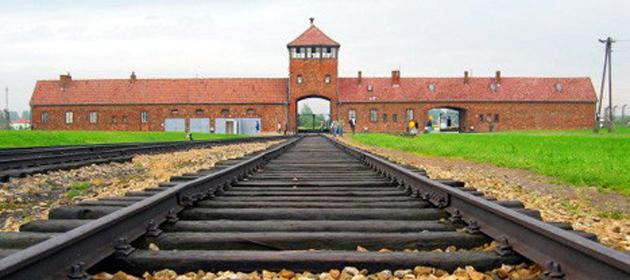Dagmar Lieblová survived her internment in the Nazi concentration camp of Auschwitz at the age of 15 because a clerical error labeled her as older than she really was and she was able to leave the death camp to work in Germany. Lieblová, who is the chair of the Terezín Initiative, which endeavors to preserve awareness about the Holocaust and aid survivors, told the Czech News Agency today that her survival was an accident.
Lieblová said she is following the current rise in anti-Semitism in Europe with uneasiness but believes the EU will not let history repeat itself. At Auschwitz, the 70th anniversary of the liberation of which will be marked tomorrow, the native of Kutná Hora lost her entire family.
"Of all my relatives, the only one who survived was a cousin," she recalls. She was first sent to Terezín along with her parents, her sister Rita and other Jews from Kutná Hora in June 1942 in retaliation for Heydrich’s assassination in Prague, and in December of the following year she was sent to Auschwitz.
Unlike other transports, she was in one which did not immediately undergo the infamous selections in which some prisoners were sent straight to their deaths. As she later learned, she was designated for "special treatment" along with others.
"That meant death in the gas chamber after a half-year of quarantine," she says. "After that half a year, however, things were different. Suddenly those capable of work were to sent to work in camps elsewhere in Germany. The Germans probably concluded that the Jews might do something for the Reich before the Final Solution."
The Nazis set the age limit for employability at 16 years of age for females and Lieblová was only 15. "Then, however, it turned out that there was an error in my date of birth. What was written in the record was 1925, but I was actually born in 1929. So it looked on paper like I was 19," she says of her life’s watershed moment.
Since bureaucratically she was considered of working age, she then went through selection. "If that error hadn’t been there, I would never have gone to selection. There was no avoiding it, I went to selection and I made it through," she says.
Shortly afterward, in July 1944, when she and a friend were transported in cattle cars to work in Hamburg, the Nazis murdered her parents and sister at Auschwitz. In the northern city she was put on a work detail cleaning up debris and digging anti-tank ditches, and she experienced Germans there who were different than those running the concentration camps.
One woman for whom she worked invited them home and fed them. "That was a wonderful experience, because we saw normal food and a normal kitchen again after almost three years of not having them. Her son brought us a bag of turnips before Christmas. There were a couple of potatoes there and a head of cabbage as a Christmas gift," she said, adding that such a humane approach from some Germans during the war was the exception.
She ultimately gained her freedom when British soldiers liberated the Bergen-Belsen concentration camp on 15 April 1945. "There were unimaginable people there, unimaginable lice that gave everyone spotted typhus, to say nothing of the other bugs. There was no running water, we received almost nothing to eat and there were corpses lying everywhere whom no one bothered to remove," she says of the conditions in that camp.
She returned home with a serious case of tuberculosis. "It was an accident," she says of her survival.
"Someone in my case made a mistake and wrote down a five instead of a nine, it’s really an accident," she is convinced. "Without that error, I wouldn’t be sitting here."
While she frequently discusses her experiences and the Holocaust as part of the Terezín Initiative’s activities, she says it is not easy for her to do so. "Those of us who went through Auschwitz will carry it with us the rest of our lives. It was something that leaves an indelible mark on a person," says the woman who received the Czech state’s Order of Tomáš Garrigue Masaryk for her activities in 2011.
Lieblová admits that she is watching with concern the current increase in manifestations of anti-Semitism in Europe, which the United Nations has also warned about. "I still hope that the world has learned its lesson and that Europe is a bit different than it was before the Second World War. I believe in the European Union in this regards, it is not possible to permit what happened then to recur," she says.
The Holocaust survivor puts her hope in the young. "All we can do is speak with the young people and hope today’s generation will do something about this," she says.
